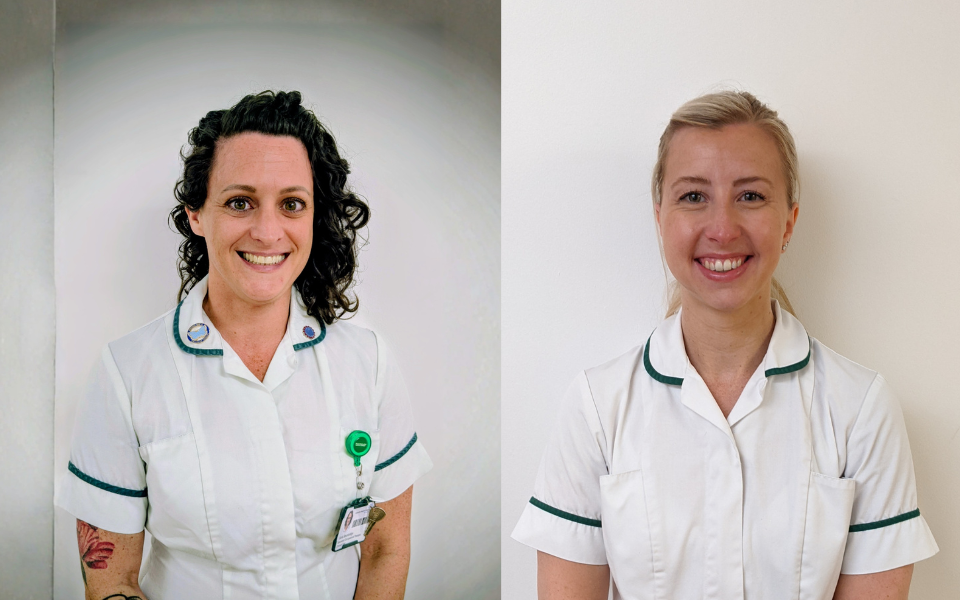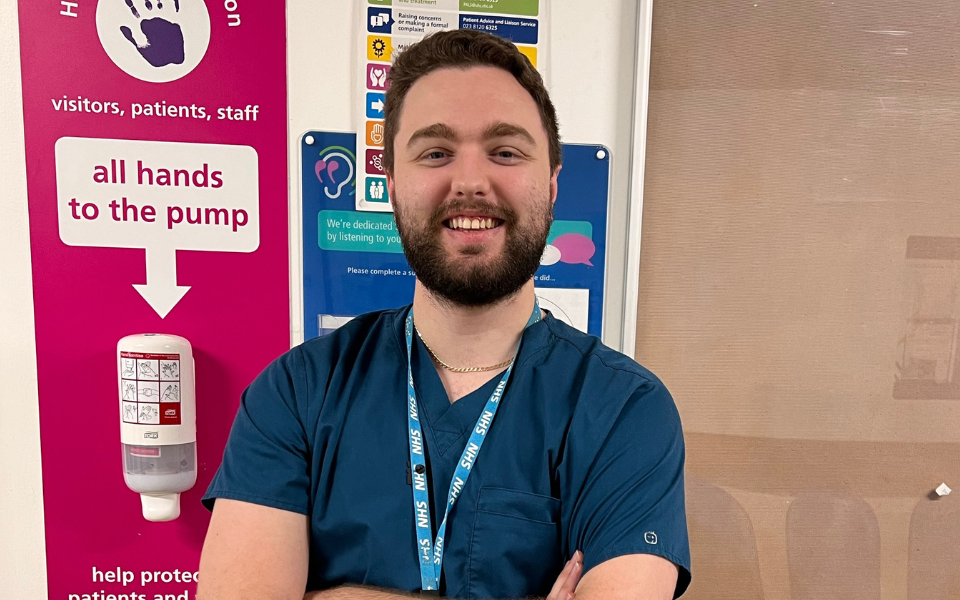
Healthcare science
Why I Chose Pharmacy: Kieran’s Journey at UHS
Meet Kieran, a Band 6 Rotational Pharmacist at UHS. Kieran has been with the Trust, working his way up the Pharmacy career ladder with the support of his team and his drive to continuously learn.
Why did you choose to become a pharmacist? Was there a particular moment or experience that motivated you to pursue this profession?
Just before I started college, I began to think about my future career. I used to love listening to stories about my family members who had pursued different careers in medicine. I began to fall in love with the idea of doing something in medicine but wasn't quite sure where I fit in, so I took a Saturday job at my local pharmacy and found myself falling in love with that job, having regular patients who I used to look after and being able to see the positive difference I was making every day, that's what inspired me to pursue a career as a pharmacist.
What made you choose hospital pharmacy over other areas of pharmacy (e.g., retail, research or community)?
With the variety of cases and the things you see, there is never a dull day and every day brings new challenges. I’ve had the opportunity to see and work with teams treating rare conditions and been involved in the care of complex patients and I feel like I make a real impact whilst continually learning myself.
What attracted you to UHS, and how has your experience been since joining?
I had the opportunity at university to do some work experience with the pharmacy teams here and from that point went “Yep, this is where I want to work!”. Every person I met was so invested in my development, took the time to answer questions and inspired me. That has not changed since joining as a trainee, and now as a fully qualified pharmacist. I continually feel supported in my role with a wonderful team that I love working with.
How does UHS support your professional growth and career progression as a pharmacist?
I’m very thankful that UHS is constantly giving us opportunities to attend professional events, there is regular training provided for pharmacists within the department too. There is also a lot of support for pharmacists undertaking their clinical diploma and independent prescribing qualifications to help them progress in their own careers as well as support with other additional qualifications such as anyone wanting to undertake additional masters qualifications or complete research within the department. UHS Pharmacy also often has progressional band 6-7 posts for pharmacists, as well as more specialist band 7 and 8 posts.
What are your next career steps, and how do you plan to develop further as a pharmacist?
My aim is to start on my clinical diploma as soon as possible, this is a 2-2.5-year additional qualification that pharmacists can undertake to enhance their clinical knowledge and prepare them for more advanced clinical practice. Often it also includes the independent prescribing qualification which enables us to become a specialist prescriber in a field of our choice. I don't yet know where I want to specialise but I look forward to rotating round the different clinical areas and finding an area that I can see my future in.
How would you describe the role of a hospital pharmacist compared to other healthcare roles?
We are medicines experts; our role often centers around making sure the patients are getting the best out of the medicines and ensuring that everything has been prescribed safely and carefully. We can advise on treatment plans, medicine choices and advise on other considerations. We are often utlised in cases where polypharmacy is involved to optimise care for that patient. We are also involved in complex cases where we may have to use medicines off-label or go off guidelines and we are in the best position to advise on dosing and research these medicines in depth with the help of our amazing medicines advice service, run entirely by pharmacists!
What do you think makes hospital pharmacy unique in terms of its contribution to patient care?
We have rotational pharmacists who have experience working in multiple clinical areas and are able to provide a wide and general scope to patient care, often described as “seeing the big picture” with a great eye for detail, spotting problems at ten paces, but equally you have specialist and consultant pharmacists who have years of experience in these conditions and often are able to optimise inpatient medicines as well as provide amazing follow up care in pharmacist led clinics.
What impact do you believe pharmacists have on patient care in a hospital setting and how does this make it a rewarding career?
I think often we see patients for the entire duration of their stay, we deal with immediate problems when they come in, then keep them well throughout making sure they’re getting the best out of their medicines but also assisting with any issues that may crop up whilst they stay with us, we also can advise on further care after discharge and I think that's the most rewarding thing is being able to not only see the entire patients journey, but have an impact on each part and being able to see them improve day by day, that is exceptionally rewarding
For those who may not be comfortable with blood or direct patient procedures, why might pharmacy be a good option?
This was exactly me, absolutely cannot stand the sight of blood! The beautiful thing about being a pharmacist is that you can still get as involved with patient care, learn all about the procedures and tests that are being done, gaining and maintaining all that knowledge without being put in a situation where you would feel uncomfortable
What is the most rewarding aspect of your role as a hospital pharmacist?
I love working as part of an MDT, answering questions from different people in different roles all day, I take home a deep sense of pride in myself and my profession, knowing I've had a positive impact on their care. Its really what motivates me to keep going and do more, especially when everyone is so appreciative of your help, even with the smallest of queries.
What challenges have you encountered in your role, and how have you and the team overcome them?
I think as a new pharmacist in particular, you get a huge sense of imposter syndrome, but you have to be confident in yourself, your knowledge, and your abilities. It can be really daunting discussing things with doctors and nurses, especially if you think something is a mistake, but that is why it's so important that you discuss it; either you will have prevented a mistake from happening or you’ll be able to learn a little bit more about why something was done a certain way to allow you to become a better professional.
How do you collaborate with doctors, nurses, and other healthcare staff to deliver the best patient care?
Day to day you can always find us on our respective wards and often you will find me discussing plans for patients with the nursing teams, helping supply medicines and answering questions about the medicines themselves. I take part in ward rounds and MDT’s with doctors of all levels where we discuss cases and work together on solutions to problems in order to get these patients ready for discharge. I’ve also had the pleasure of working with physiotherapists, speech and language therapists and dietitians, asking each other questions so we can better understand the patient and how we can work together to get them healthy and home as soon as possible.
I also need to shout out the amazing pharmacy technicians that we work with who just allow us to do our job so much more easily, taking accurate drug histories for us, faciliting our TTO’s and medication requests and running the dispensary, they do an amazing job and I want to make sure that they get the recognition they deserve.
Are there opportunities for pharmacists to collaborate with other healthcare teams?
Yes, absolutely, nowadays you rarely see a ward round without a pharmacist present in any clinical setting, we’ll take part in microbiology ward rounds, surgical ward rounds, different types of multidisciplinary team meetings such as trauma and orthopedics or specialist cancer meetings. Our consultant pharmacist in diabetes leads our IDOT team who assist with patients throughout the hospital so there really is no end to our involvement with other teams
How does teamwork within the pharmacy department at UHS contribute to a positive work environment?
I’m very privileged to work with some of the pharmacists I trained with and that's been amazing to have a group of constant support who fully understand what you’re going through, alongside a cohort of senior pharmacists who always give their time to help you with questions and give you a variety of opportunities to help your personal and professional development. I have to say I truly feel valued as a person and a professional and its an absolutely amazing feeling.
What advice would you give to someone thinking about a career in pharmacy, particularly in a hospital setting?
Hospital pharmacy is a very rewarding career with so many opportunities and lots of development but there's no denying that it can be quite intense. You will experience things in this sector that you never would in any other setting, sometimes great and sometimes quite difficult so its important you have that understanding that this is career you have to put a lot of hard work into but the rewards are plentiful.
What skills or qualities are essential for success as a hospital pharmacist?
- An eye for detail is so important, and one of the biggest parts of the role is spotting the things that no one else does.
- Adaptability, especially as a rotational pharmacist you will cover almost every clinical setting in the hospital and with how unpredictable your days are, you need to be flexible and adaptable to any problems.
- Approachability – you work as part of not just the pharmacy team but the wider MDT and you need to be approachable to not just staff but patients too, its so important that people feel they can come to you without fear of judgement when they have questions or concerns.
- Good communication, both written and verbal – These are so important as you will use both every single day to communicate suggestions, questions and concerns and its vital you are able to communicate clearly and concisely but also confidently especially when discussing concerns you may have.
Is there something about the job that might surprise someone new to the field?
The sheer range and scope of pharmacist involvement in different clinical areas, when I was training I had no idea careers such as oncology, clinical trials or surgical pharmacists existed, or that I could do additional training to become a specialist or even consultant pharmacist in an area of interest; It’s also surprising how big a focus there is on pharmacist led research and how many pharmacists in their spare time will take on a project in order to improve the way we work and provide care at UHS.
Related Blogs
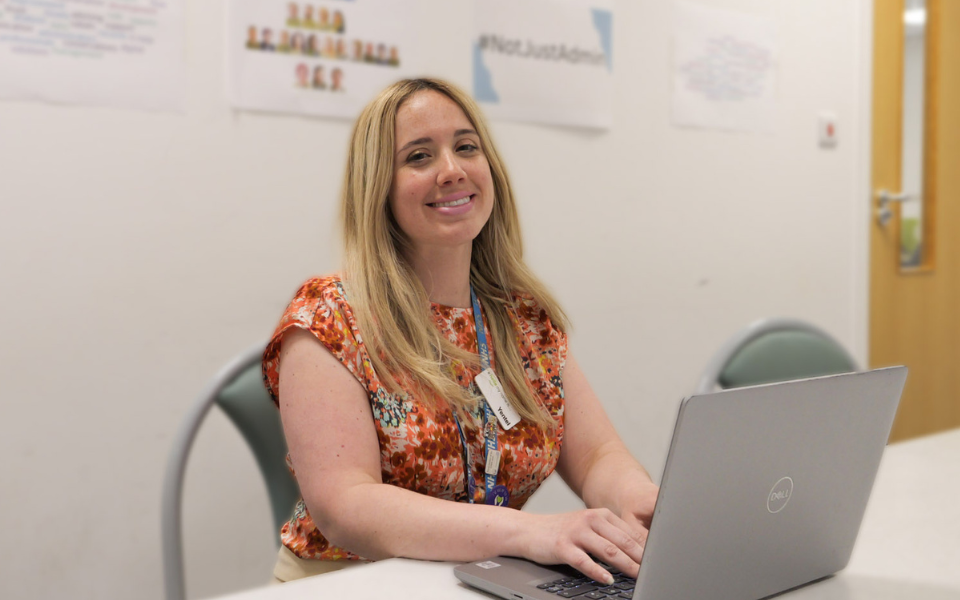
From Sports Coach to NHS Innovator: How Yentel Found Purpose at UHS
More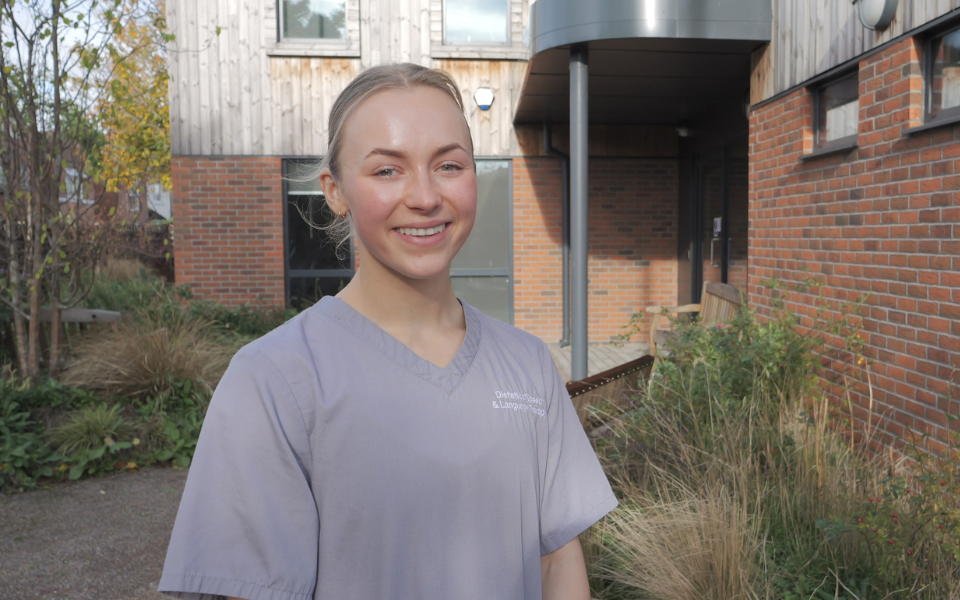
Supporting Newly Qualified Professionals: The Impact of Preceptorship at UHS – Goda’s Story
More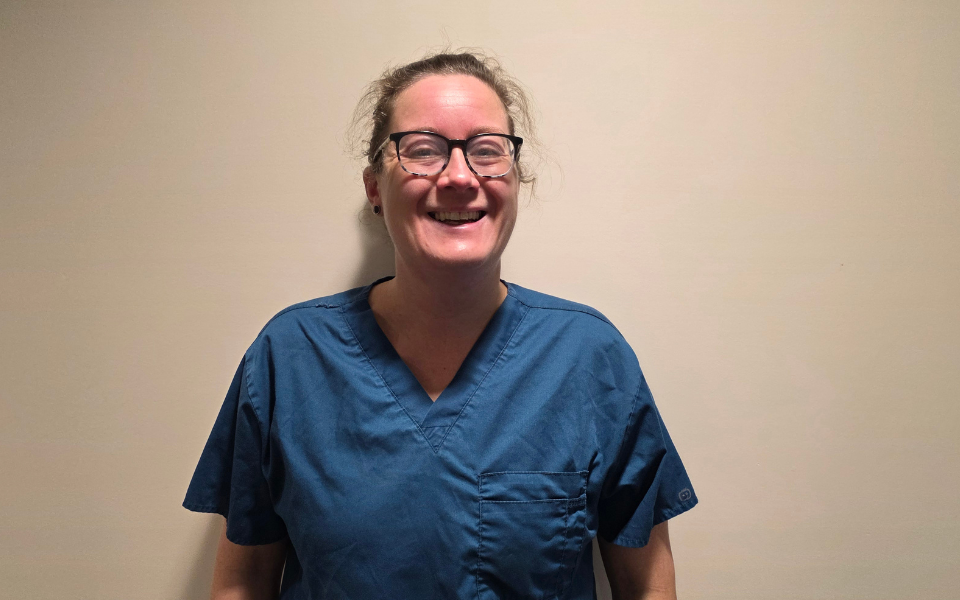
From Childhood Dream to NHS Specialist: Lizzi’s Journey in Pharmacy
More